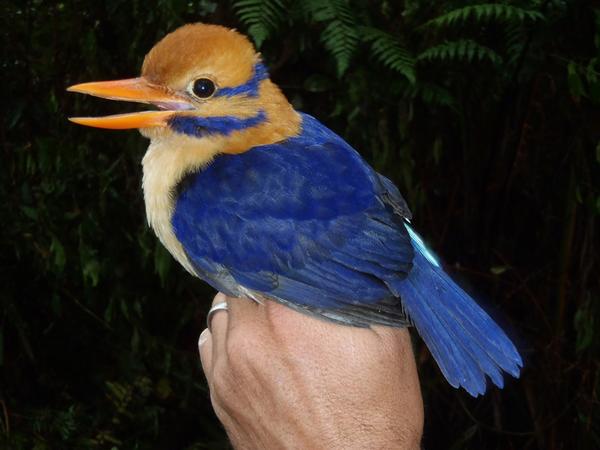Scientist Kills Elusive Bird in the Name of Research
@crewgirl (191)
United States
October 26, 2015 2:21pm CST
I just found this article on facebook today and I want your opinions on it.
In the article, ornithologist, Chris Filardi, finds and captures the mustached kingfisher in its native habitat, the Soloman Islands. The mustached kingfisher is widely considered the holy grail to birdwatchers and here's why: The extremely elusive bird hadn't been seen for roughly half a century and also had only been documented through outdated scientific illustrations, that is, until Filardi caught and took the first photographs (ever) of the beautiful creature. And then what Filardi did next is deemed very controversial: he killed the bird.
Filardi states he did it in the name of research. The article states that killing animals for research "has been the practice of biologists all over the world for hundreds of years, particularly during the Victorian era when tens of millions of rare and exotic animals were killed and stuffed for museums." However, the practice of killing animals for research has declined heavily in modern times because it is technically unnecessary due to advanced photography, DNA analysis, and other modern scientific technology. Filardi argues that "there are certain data that are simply unobtainable from just blood and DNA samples alone, including 'a comprehensive set of material for molecular, morphological, toxicological, and plumage studies.'" The question is, why harm a bird that hasn't been seen in 50 years and may be on the verge of extinction? Filardi estimates that there could be around 4,000 mustached kingfishers in the wild today, but how can he be so sure?
One critic, Marc Bekoff, professor of ecology and evolutionary biology at Colorado University, wrote in the Huffington Post that collecting specimens is “still the name of the game for some researchers: find a beautiful, unique, or rare animal and then kill it in the name of something or another to justify the unnecessary slaying.”
So what do you think about this? Should Filardi have killed the bird? If you can, please read the article before responding:

After searching for close to a century for the elusive bird, researchers have finally discovered what is to some considered the birding holy grail. First described from a single female specimen in the 1920s, the moustached kingfisher of the Solomon Islands
1 person likes this
3 responses
@GopherDanny (814)
• Philippines
27 Oct 15
In my perspective, I think killing endangered/extinct creatures should not be done in the name of research. They're a part of our ecology and they provide benefits for human beings such as enjoyment, and the like. The mustached kingfisher is very beautiful bird, they should at least help the bird propagate it's own kind and if there is a kingfisher bird that is dying, then that's the time they should perform mercy killing in the name of mercy and science. He he
What Firaldi did was a mistake, period. Even in the name of Science, such extreme measures should not be conducted. Kudos~
1 person likes this
@crewgirl (191)
• United States
27 Oct 15
Yes, when I saw the picture of the beautiful bird, I was heartbroken when I realized the scientist had killed it. The bird looked very calm in the photograph, almost like it didn't mind being held, making it even more heartbreaking. I personally agree with you. I find the killing of animals for research completely unnecessary most of the time. If he didn't have the modern tools to study the bird without killing it, he could've sent the bird to a lab that did. I think he was very selfish on his part.  Thanks for your opinion!
Thanks for your opinion!
 Thanks for your opinion!
Thanks for your opinion!2 people like this
@cahaya1983 (11116)
• Malaysia
27 Oct 15
This was his statement,"On this trip, the real discovery was not finding an individual Moustached Kingfisher, but discovering that the world this species inhabits is still thriving in a rich and timeless way.” That's a really weak justification for the killing of this bird (or any living thing for that matter).
1 person likes this
@crewgirl (191)
• United States
27 Oct 15
I personally agree with you. The world the bird inhabits may be thriving, but how is he certain that the bird itself is thriving to justify killing it. It hasn't been seen in half a century. Who knows? Humans don't always have to be responsible for a creature's endangerment or extinction. It may be a "thriving" environment, but a fungus, disease, or predatory animal could be a culprit to why the bird is so rare. Thanks for your opinion.
1 person likes this







